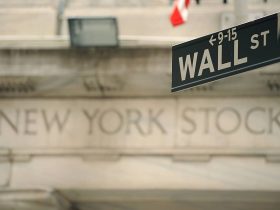Investors should expect general reassurances, at best, that neither the U.S. or China are courting conflict as President Joe Biden and Xi Jinping seek to stabilize a relationship that has taken new blows since the two last met.
A meeting expected Wednesday in San Francisco would be the first in a year, culminating months of efforts by Biden administration officials to stabilize the relationship between two hypercompetitive rivals. Since the pair last met, in November 2022, ties have been strained by Chinese spy-balloon flights over the U.S., increased tension over Taiwan, anti-espionage rules imposed by Beijing, and Washington further restricting China’s access to advanced technology.
The best outcome for investors is if the two leaders manage to get back to where they were a year ago, with commitments to reopen dialogue to avoid conflict as their rivalry intensifies and wars in the Middle East and Ukraine create new challenges. But analysts see little else from the meeting to change investors’ view that this relationship is in a new stage of increased friction.
Analysts have been worried about the dearth of open channels of dialogue to de-escalate any potential accidents that could come increased military activity in the South China Sea. China cut off military exchanges after last year’s visit by former House Speaker Nancy Pelosi to Taiwan, the island democracy China claims as its own.
“The biggest positive would be any indication that military to military engagement is resuming,” says Clayton Allen, who covers politics and policy in Washington for Eurasia Group. “That has been one void in the U.S.-China relationship.”
There have been modestly positive signals. Ahead of the Biden-Xi meeting, Treasury Secretary Janet Yellen met with Chinese Vice Premier Li Hefeng. The two agreed to intensify communications and emphasized that the two economies weren’t seeking to decouple, agreeing to work together to ensure economic growth and financial stability, tackling climate change and debt issues in low-income economies.
According to the readout of the meeting, Yellen raised concern about China’s recent export controls on graphite and other critical minerals, stressed that Chinese companies shouldn’t provide support for Russia’s defense industry, and emphasized that the U.S. is taking a narrow and transparent approach as it looks at restrictions on China related to national-security concerns.
But beyond that, analysts see little to boost market sentiment, much less offer relief to companies trying to navigate the increasingly contentious relationship.
“Market moving events like tariff hikes or cuts shouldn’t be expected at this time, and tariff hikes are just as likely as tariff rate reductions given the lack of efforts to engage the U.S. is seeing from China,” says Henrietta Treyz, director of economic research at Veda Partners, a political consultancy. “That’s going to be true in 2025 under either President Biden or President Trump.”
The Biden administration’s commitment to human rights, efforts to limit climate change and bolster domestic manufacturing and jobs will be reflected in negotiations on the trade front, Treyz says. She adds that U.S. Trade Rep. Katherine Tai is unwilling to cater to the “impression of progress” such as vows from China to buy more U.S. agriculture products as it did during the Trump administration.
Without real progress on climate, steel dumping, human rights, and other issues, Treyz doesn’t see much movement on the tariffs that were imposed initially by the Trump administration on some $370 billion of Chinese exports. The tariff burden has grown since then, in part because the Biden administration isn’t offering licenses and carve-outs for industries that were more common under Trump, Treyz says.
Still, there could be news that affects specific industries. Beacon Research’s Owen Tedford said he would be looking for signals on where the administration is headed next. Beyond tariff review, areas to watch include the prospect of renewed scrutiny of TikTok, the short-video app own by China’s ByteDance, as the 2024 election approaches; possible restrictions on lidar, a technology critical to self-driving cars; and additional limits on semiconductor technology.
Xi will meet with U.S. business leaders during his visit to San Francisco, Bloomberg reported. That would come as U.S. companies are reassessing their exposure to China in light of its slowing growth, increased state intervention in the economy, and revised anti-espionage rules that have raised concern about detentions among foreign executives.
Given all that, companies and investors are on edge, worried about getting caught in the middle. It’s no wonder.
Even the three pandas at the Smithsonian Institution’s National Zoo in Washington, D.C., have been affected by the deteriorating relationship. On Thursday, the pandas were shipped via
FedEx
back to China, pausing 50 years of panda diplomacy.
Write to Reshma Kapadia at [email protected]
Read the full article here









Leave a Reply